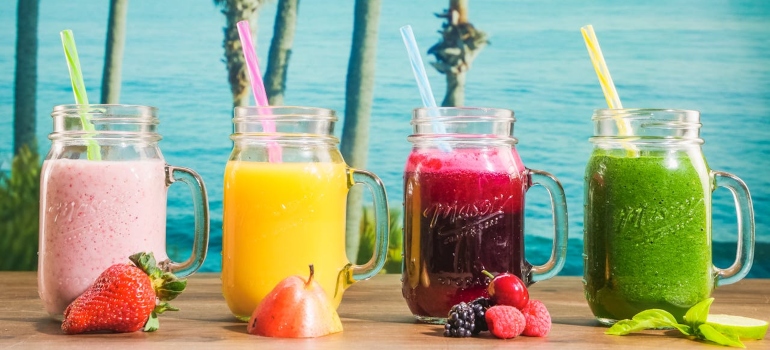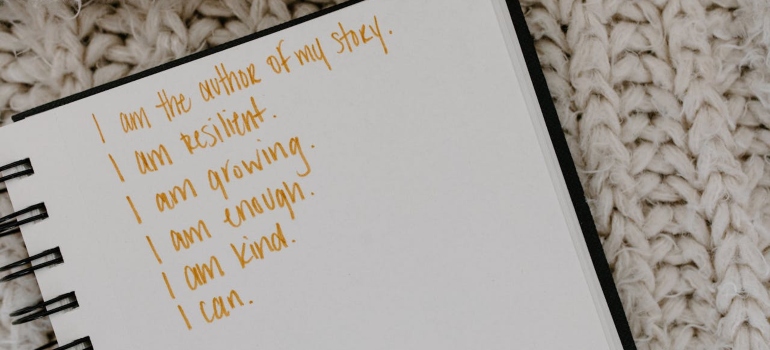Handling social situations while staying sober can be challenging for many people on their recovery journey. Social gatherings often come with temptations or pressures that can trigger cravings, making it difficult to maintain sobriety. Understanding these triggers and preparing strategies for navigating various social scenarios are important steps for anyone committed to staying sober. With the right mindset, support, and practical tools, anyone can enjoy social settings without risking their recovery. We’ll discuss common social triggers and outline 14 practical strategies for handling social situations while staying sober.
Understanding Social Triggers
Social triggers are external cues or situations that can spark a craving for alcohol or drugs. For instance, a person might feel tempted when they see others drinking, remember past habits, or feel left out if they’re the only ones not partaking. Identifying which situations make someone vulnerable to cravings can provide insight into how to handle them effectively. Harmony Ridge Recovery Center offers tools and resources to help individuals identify and manage their unique social triggers, making it easier to prepare for challenging environments.

Reflecting on which specific scenarios feel the most challenging allows individuals to prepare with strategies tailored to their needs. Common triggers can include:
- Being around people who drink or use drugs, especially if they are close friends or family.
- Social pressure to fit in, feeling isolated or left out if not partaking.
- Memories of past events or habits that involved substance use, which may evoke feelings of nostalgia.
- Environmental cues, such as being in locations associated with drinking, like bars, clubs, or even certain friends’ homes.
14 Ways of Handling Social Situations While Staying Sober
Here are 14 ways to prepare for social gatherings, safeguard sobriety, and make each event enjoyable. These strategies are designed to help manage potential stress and reinforce personal commitment to a substance-free lifestyle.
Setting Personal Boundaries in Social Settings
Setting personal boundaries is an important step in handling social situations while staying sober. Boundaries provide clarity on what feels safe and comfortable, especially in the early stages of recovery. For some, it may mean avoiding specific people or environments altogether, while for others, it could mean leaving gatherings early if they start feeling uncomfortable. Examples of effective boundaries include:
- Leaving an event early if you sense potential triggers.
- Declining invitations to high-risk events, like a party where alcohol will be the main focus.
- Limiting time spent with people who tend to drink heavily or encourage substance use.
- Taking a break from certain locations, such as bars or nightclubs.
Preparing a Sober Support System
Having a sober support system can be extremely reassuring when attending social events. Friends, family, or even peers from support groups who understand and respect your commitment to sobriety can offer comfort and accountability. A strong support network can be an anchor in challenging social situations, providing encouragement and motivation as part of your strategies for long-term sobriety. To build an effective support system:
- Bring along a trusted friend who respects your sobriety.
- Attend events with people who don’t drink, creating a sense of community and shared experience.
- Reach out to accountability partners when needed, such as texting or calling someone who can encourage you.
- Participate in sober-friendly events where others are likely to be on the same path.

Practicing Responses to Decline Drinks or Offers of Substances
In 2023, the United States National Survey on Drug Use and Health (NSDUH) reported that 10.2% of Americans aged 12 and older experienced an alcohol use disorder within the past year. Being able to comfortably decline drinks or substances in social settings can help you feel confident and in control. Practicing responses that feel genuine and comfortable can make these interactions easier and help you avoid feeling pressured. Examples of polite but firm responses include:
- “I’m not drinking tonight.”
- “I’m taking a break from alcohol.”
- “I’ve got an early morning, so no thanks.”
- “I’m focusing on my health right now.”
These statements can be practiced alone or with a friend, so when you’re in a social setting, you’ll feel prepared to respond without hesitation. Additionally, rehearsing responses to turn down offers can ease anxiety and empower you to maintain control in situations where substances are offered.
Choosing Activities That Don’t Center Around Drinking or Drugs
Opting for social activities that don’t center around substances allows you to enjoy company without feeling uncomfortable. Sober-friendly gatherings encourage new connections and create an atmosphere where sobriety is respected. Consider activities like:
- Outdoor adventures like hiking or biking that promote wellness.
- Group meetups around hobbies such as book clubs, art classes, or sports leagues.
- Fitness or wellness classes that emphasize physical and mental health, such as yoga or meditation.
- Casual coffee meetups or brunch outings, providing a relaxed atmosphere.
Exploring activities that don’t involve alcohol opens doors to enjoyable experiences while reinforcing sobriety and creating meaningful connections, which is especially helpful for someone in recovery from an eating disorder or similar struggles.

Focusing on Conversations and Building Deeper Connections
Deep conversations help you connect with people on a more authentic level. When your focus shifts from what you’re drinking to who you’re engaging with, you can build connections that go beyond the surface. Social situations don’t have to revolve around drinking; instead, they can be opportunities to create lasting relationships. Tips for meaningful engagement include:
- Asking open-ended questions to get to know others better.
- Actively listening to show genuine interest in what others are saying.
- Finding common interests to keep conversations flowing naturally.
- Sharing personal goals or passions, creating a bond beyond small talk.
Finding and Attending Sober-Friendly Events
Sober-friendly events are ideal for people in recovery, as they eliminate the temptation of substances altogether. Many communities organize such events. Local recovery groups or wellness organizations often host activities that encourage healthy interactions and create a comfortable, sober space. To find sober-friendly events:
- Check community boards or social media for local meetups.
- Search online directories specifically for recovery-friendly activities.
- Attend sober-focused clubs or organizations, like fitness groups or creative workshops.
- Engage with local recovery groups, which often organize gatherings or celebrations around sobriety.
Staying Occupied with a Non-Alcoholic Drink
Holding a non-alcoholic drink can help you feel at ease in social settings where others are drinking. When you have a drink in hand, people are less likely to offer you alcohol or question your choice. Additionally, many venues offer non-alcoholic versions of traditional cocktails, making it easy to blend in without compromising your sobriety. Options for non-alcoholic drinks include:
- Mocktails that resemble popular cocktails.
- Sparkling water with lime or other fruit garnishes for a refreshing option.
- Flavored teas or iced coffees, providing flavor without alcohol.
- Fruit juices or sodas if you prefer something simple and tasty.

Keeping Exit Strategies in Mind
An exit strategy provides a sense of control and security in social settings. Having a clear plan for how and when to leave if things become uncomfortable can ease social anxiety and empower you to navigate these situations with confidence. Knowing you have a plan in place can help alleviate any stress associated with potentially triggering situations. Exit strategies can include:
- Arranging for a friend to call or text at a specific time, giving you an excuse to leave.
- Setting a time limit for how long you’ll stay at an event.
- Having transportation options ready, whether by a designated driver, rideshare app, or public transport.
- Communicating with friends beforehand about your intentions and limits.
Using Mindfulness Techniques to Stay Grounded
Mindfulness techniques are powerful tools for staying present and managing anxiety. Practicing these techniques in social settings can help you stay focused on your goals and handle any emotions or cravings that arise. Effective mindfulness techniques include:
- Deep breathing exercises, which help reduce stress and bring calm.
- Grounding exercises, like feeling the physical sensations of your body to stay present.
- Positive visualization, imagining yourself confidently enjoying the event without substances.
- Noticing sensory details, such as sounds, sights, and smells, to stay anchored in the moment.
Reflecting on Personal Reasons for Staying Sober
Keeping your personal motivations for staying sober front and center is an excellent way to reinforce your commitment. Whether it’s improving health, nurturing relationships, or achieving goals, these reasons can remind you why sobriety matters and provide strength during moments of temptation. Consider ways to keep your motivations present:
- Writing them down and carrying them in your wallet or phone.
- Using positive affirmations that reinforce your dedication to sobriety.
- Creating a personal mission statement for your journey.
- Reflecting on past progress and future aspirations, visualizing a brighter future.
When you stay connected to these reasons, handling social situations while staying sober becomes easier, as you’ll remember what’s at stake and why you chose this path.

Being Kind to Yourself and Allowing Social Growth
As you start navigating social situations sober, it’s important to be kind to yourself. Feeling awkward or uncomfortable initially is natural, and each experience provides an opportunity for growth. Over time, you’ll find it easier to engage without relying on substances, and you’ll gain more confidence with each sober outing. Ways to foster self-compassion include:
- Acknowledging each sober accomplishment, no matter how small.
- Allowing yourself to feel a range of emotions, knowing it’s normal.
- Reframing challenges as learning experiences, not setbacks.
- Celebrating the courage it takes to attend events without substances.
Finding or Creating Sober Networks and Friendships
Building friendships with like-minded people who respect your sobriety can make socializing more enjoyable. A rehab center for young adults and programs for professionals offer group support options, and many recovery centers host community events to foster connections. Finding friends who share your values and goals can create a sense of belonging. Tips for creating sober networks include:
- Joining local sober meetups or recovery group activities.
- Volunteering in your community to meet others with similar values.
- Participating in hobby-based groups, like fitness classes or creative workshops.
- Attending therapy or counseling groups, such as substance abuse treatment WV programs.
Celebrating Personal Wins and Setting New Social Goals
Celebrate each social experience you handle while sober. Acknowledging these accomplishments can reinforce positive behavior, making future situations easier to navigate. Setting small, achievable goals for social interactions can also help you build confidence gradually. Ideas for celebrating and setting goals:
- Reward yourself after successfully managing a challenging social event.
- Set a goal to attend a new social event each month to expand your comfort zone.
- Host a sober-friendly gathering with friends.
- Reflect on your progress regularly, taking pride in each milestone.
Seeking Professional Help or Group Support if Needed
Sometimes, handling social situations alone may feel overwhelming, and seeking professional help can be a valuable step. A residential treatment center West Virginia, for instance, offers support programs for those looking to strengthen their coping skills. A therapist or counselor can provide specialized strategies for managing social anxiety and cravings, and participating in group support programs can also make handling social situations easier. If needed, seek help from:
- Counseling and therapy sessions for individual support.
- Medication assisted treatment West Virginia for those requiring additional support.
- Local recovery groups that emphasize sober social interaction.
- Rehab for professionals, offering guidance tailored to career-related challenges.
Seeking support is a sign of strength, showing your commitment to a substance-free life and empowering you to overcome challenges in a healthy way.

Embracing a Confident Life: Handling Social Situations While Staying Sober
Handling social situations while staying sober is a process that becomes easier with practice, planning, and support. By identifying personal triggers, setting boundaries, and finding sober-friendly social options, individuals can enjoy gatherings while protecting their sobriety. Each experience offers a chance to grow more confident in social settings, paving the way for meaningful connections and a fulfilling life without substance reliance. With commitment, support, and a strong sense of self, anyone can navigate social scenarios successfully while staying true to their journey.
Reference:
https://www.samhsa.gov/data/report/2023-nsduh-detailed-tables



